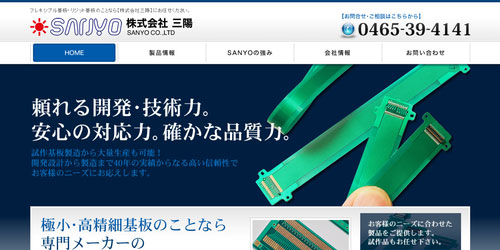Multilayer Flexible PCBs
A multilayer flexible substrate made by combining single-sided and double-sided flexible substrates (FPC).
This page describes multilayer flexible substrates.
What are Multi-Layer Flexible Printed Circuits?

Source: K2 Print Official Website
(http://www.k2p.jp/manufacturing/flex_tasou.html)
Multi-layer flexible printed circuits are those with three or more conductive layers formed by combining single-sided and double-sided flexible printed circuits (FPCs).
The base material is made entirely of polyimide, and since there is no difference in temperature characteristics between the layers, they have high reliability in through-hole connections. The circuit board and cable are integrated.
Differences from Flexible Printed Circuits
Unlike standard flexible printed circuits (FPCs), multi-layer flexible printed circuits have the circuit board and cable integrated, eliminating the need for connection connectors. This reduces design constraints due to mounting space.
Furthermore, since they are multi-layered, the number of mounted components can be increased, enabling higher density. The absence of connection cables also leads to weight reduction, shorter manufacturing processes, and cost reduction.
Trends and Challenges in Increasing Layers
In today's world, where electronic devices are becoming smaller, thinner, lighter, and more sophisticated, many manufacturers are supporting multi-layer flexible printed circuits, and the number of layers in these circuits is increasing. Multi-layer flexible printed circuits with up to 10 layers have already been commercialized.
However, as the number of layers increases, the technical difficulty rises, and more effort is required for product quality assurance checks and inspections.
Recommended Applications
Since they do not require connection connectors and can mount a large number of components in a small area, they are ideal for applications that dislike noise generation and for making devices smaller, thinner, and lighter.
Furthermore, their high density capability makes them suitable for high-performance devices. They are commonly used in advanced medical equipment, thin touch panels, and small mobile devices.
Summary
In today's era of increasingly smaller, thinner, lighter, and more sophisticated electronic devices, many manufacturers are supporting multilayer flexible substrates.
Multilayer flexible substrates with a high degree of design freedom can be used in a variety of structures and shapes.If you are considering adopting this technology for small or thin devices, consult with the manufacturer.
See the List of Manufacturers
Handling Flexible PCBs
Related Pages You May Also Like





